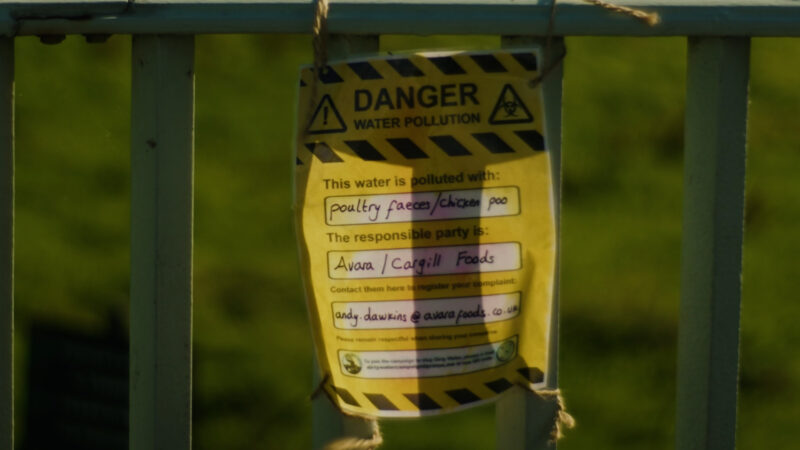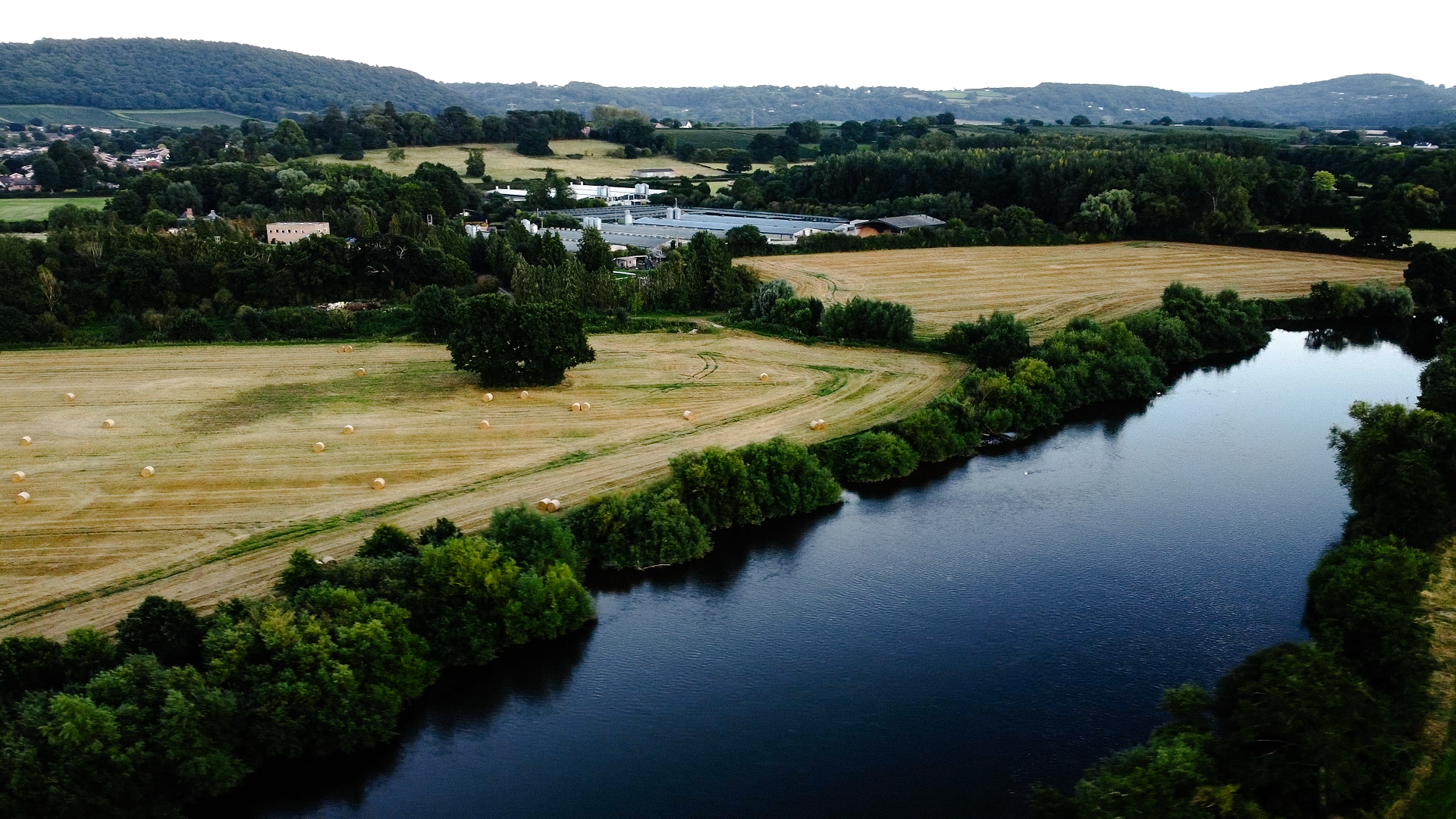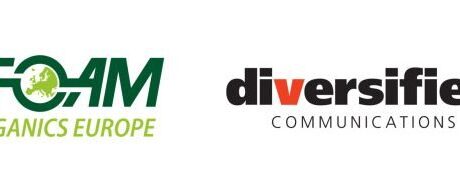A new Soil Association report has revealed that ten British rivers across seven counties are at risk of becoming dead zones depleted of wildlife if UK governments don’t ban new factory chicken farms.
Waste from the poultry industry contributes to phosphate pollution in our rivers, causing algal blooms that suffocate plants and starve the wildlife that depend on it.
The industry is a leading cause of “dead zones” on the River Wye, despite being designated a Special Area of Conservation, protected by national law. The river has been described as “very close to ecological collapse”, in part due to the manure spread on adjacent land washing into the river sourced from local poultry units. In 2023, Natural England downgraded the river to an “unfavourable-declining” status, a result of declines in key species due in part to phosphate pollution destroying the river’s vital ecosystems.
The Soil Association has highlighted 10 other river catchments in Norfolk, Shropshire, Gloucestershire, Yorkshire, Lincolnshire, Herefordshire and Powys that are at risk of suffering the same “desperate fate” as the River Wye, as these waterways are already failing on phosphate targets with intensive poultry units being heavily concentrated in these catchments.

New analysis from the food and farming charity shows that the British public is blind to the scale of industrial chicken production in England and Wales, which has been expanding at a rate of one million birds per month for the last decade, reaching more than a billion birds per year.
A new opinion poll showed 80% of people in the UK underestimate the scale of industrial chicken farming, with just one in five realising that more than 90% of chickens reared for meat are factory farmed. Only 15% of people are aware that farming is the biggest polluter of UK rivers – farming is responsible for up to 62% of river pollution.
Despite this lack of awareness, 75% would be willing to eat less chicken if it meant cleaner UK rivers and less environmental destruction overseas – showing that a “less but better” future for chicken is possible.
Soil Association Head of Food Policy Rob Percival said: “Few people realise that industrial chicken production might be the most ethically bankrupt and environmentally destructive business in the UK. It’s the scale and intensity of production that’s the issue – most people would be shocked to learn that poultry populations have been growing at a rate of one million birds every month for the past ten years. It’s gobsmacking, a horror story that is impossible to sustain.
“The system needs to be completely reformed. Farmers operating these units are often doing so out of financial necessity and need a viable alternative. Urgent government action is needed.
“The poultry industry is like a runaway train – if we don’t act now to put the brakes on industrial production, we’ll see more of our rivers becoming dead zones and facing the same desperate fate as the River Wye. If it can happen in such a protected area, it can happen anywhere. Enough is enough – we need to stop building intensive poultry units, and help farmers to exit this damaging industry.”
Soil Association Campaign Advisor Cathy Cliff, author of the report, said it is “simply impossible” to sustainably manage the sheer number of chickens and the muck they are producing. The charity has launched a petition to call for a UK-wide ban on new intensive poultry units and support for farmers to exit this “damaging” industry.
Mark Lloyd, CEO for The Rivers Trust, said: “The uncontrolled proliferation of intensive poultry farms in the River Wye catchment, with no plan for waste management, has had a devastating impact on a beautiful river. We need to develop a circular economy approach to the whole life cycle of livestock farming, so that it can be sustained in the long term. Until proper regulation and management of chicken waste at a catchment scale is in place, it would be irresponsible of local government and regulators to allow the expansion of this industry into river catchments which are already suffering widespread pollution.”
The rivers at risk from the boom of intensive poultry units
- River Thet, Norfolk
- River Wissey, Norfolk
- River Severn, Shropshire and Gloucestershire
- River Tern, Shropshire
- River Roden, Shropshire
- River Swale, Yorkshire
- River Witham, Lincolnshire
- River Frome, Herefordshire
- River Arrow, Herefordshire
- River Vrnwy, Powys and Shropshire





